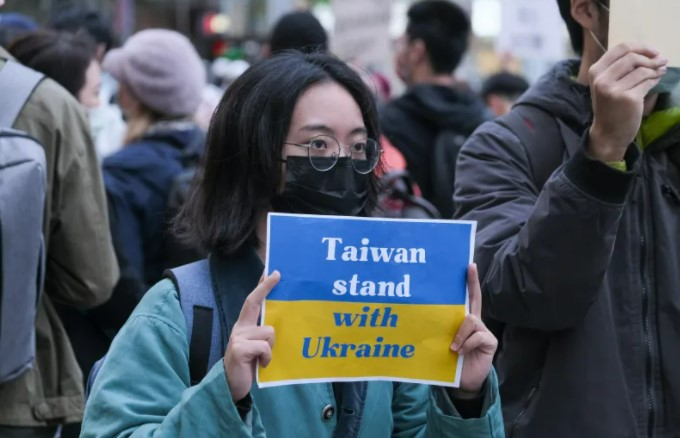
As I read China's #Taiwan policy white paper's full text, confusion sets in -- it's unclear on relationship between 'unification' and 'national rejuvenation' (NR)
Is unification a #precondition to achieving NR? Or will China #demand/compel unification at all costs only after NR?
Is unification a #precondition to achieving NR? Or will China #demand/compel unification at all costs only after NR?

Two key statements on this sound a bit circular. English version:
1. "Complete Reunification Is Critical to National Rejuvenation"
2. "The Taiwan question arose as a result of weakness and chaos in our nation, and it will be resolved as national rejuvenation becomes a reality."
1. "Complete Reunification Is Critical to National Rejuvenation"
2. "The Taiwan question arose as a result of weakness and chaos in our nation, and it will be resolved as national rejuvenation becomes a reality."
Chinese version sounds even more confusing:
1. 實現祖國完全統一是中華民族偉大復興的必然要求
2. 台灣問題因民族弱亂而產生,必將隨著民族復興而解決。
1. 實現祖國完全統一是中華民族偉大復興的必然要求
2. 台灣問題因民族弱亂而產生,必將隨著民族復興而解決。
a. So is unification necessary piece of the puzze for achieving NR?
b. Or is unification akin to a pricey luxury that China desires, but may be able to hold-off on until it achieves NR? (#DelayedGrafitication) /3
b. Or is unification akin to a pricey luxury that China desires, but may be able to hold-off on until it achieves NR? (#DelayedGrafitication) /3
The former suggests a firm deadline for unification at all costs: 2049.
The latter suggests more patience and a more "China will keep its eye on the 'bigger prize' (national rejuvenation) until 2049" mindset. /4
The latter suggests more patience and a more "China will keep its eye on the 'bigger prize' (national rejuvenation) until 2049" mindset. /4
Revealing China's patience level & sense of urgency will affect:
1. Other states' threat perception and force-building plans.
2. Other states' cohesion, when coalition-building to offset and shape Chinese ambitions.
3. Taiwan's opportunistic accommodationism sentiment. /5
1. Other states' threat perception and force-building plans.
2. Other states' cohesion, when coalition-building to offset and shape Chinese ambitions.
3. Taiwan's opportunistic accommodationism sentiment. /5
Wondering if the seeming ambiguity in the white paper is caused by:
1) Unintended wording imprecision?
2) My bad verbal logic? Or
3) Deliberately designed to increase compellence, while still maintaining an off-ramp (i.e. a commitment device that doesn't truly commit)? /end
1) Unintended wording imprecision?
2) My bad verbal logic? Or
3) Deliberately designed to increase compellence, while still maintaining an off-ramp (i.e. a commitment device that doesn't truly commit)? /end
• • •
Missing some Tweet in this thread? You can try to
force a refresh









